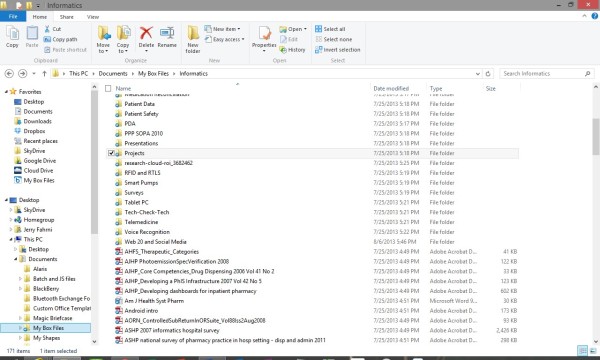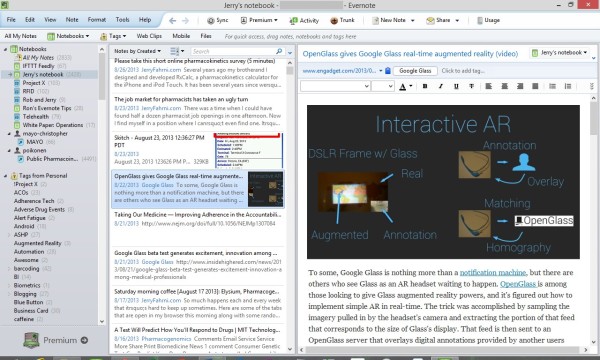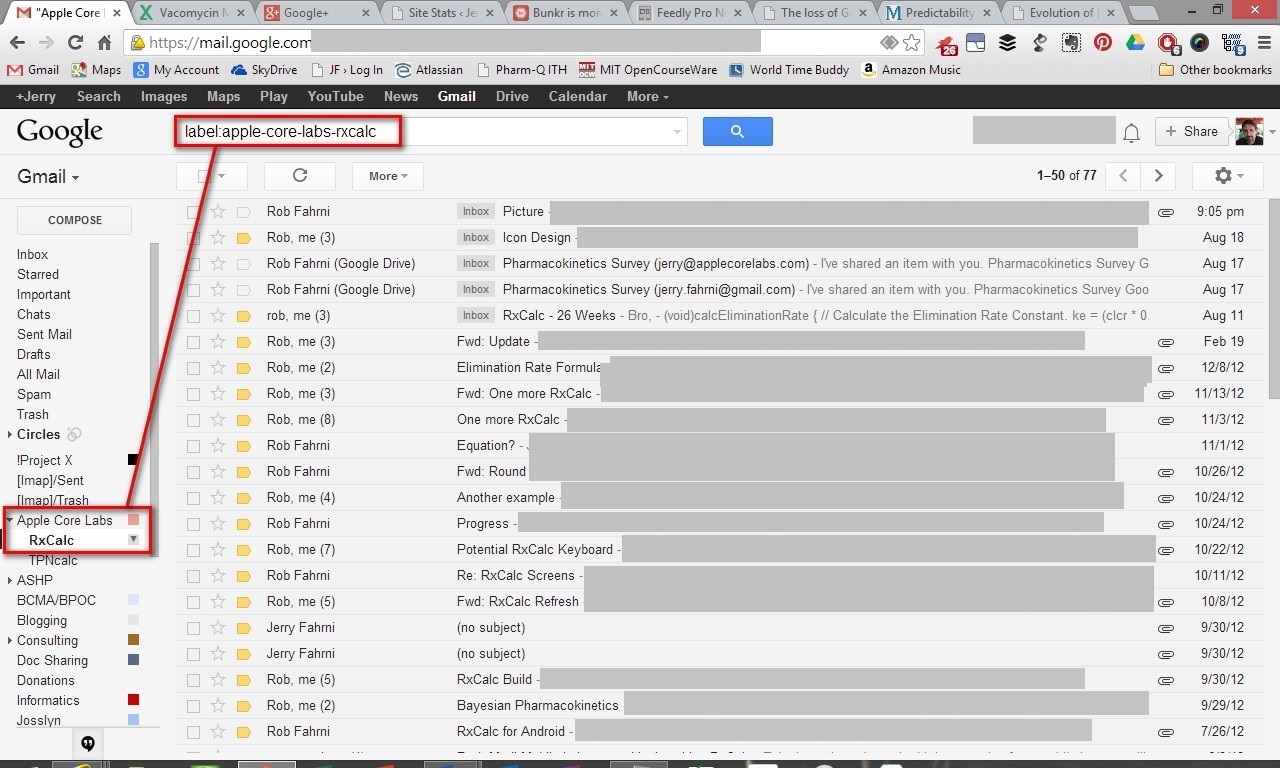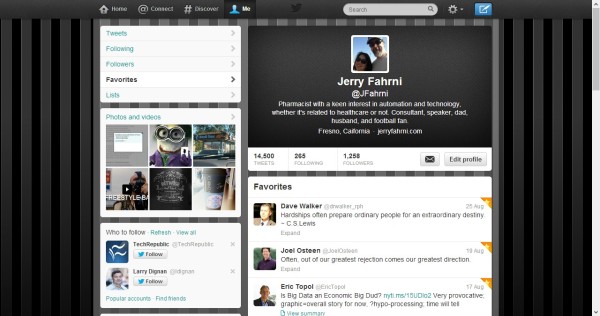I am a digital pack rat. It’s better than being a pack rat in the physical world I suppose, but it definitely causes problems. I collect information at an alarming rate, which isn’t a problem in and of itself, but it creates problems when I want to use the information that I’ve collected. It’s stored in various places via a host of methods that I’ve devised over the years to make it easy to use; in theory anyway.
Searching for information isn’t a problem, Google places the sea of information on the internet a click away, and Windows 8 offers a fair desktop search engine. No, finding information isn’t an issue. However, sorting and connecting the information in a logical way is.
Many times I’ve found information that I didn’t realize that I already had. Or I’ve had to dig through information in several locations looking for something specific that I know I have, but can’t seem to find.
It’s difficult to explain what I want out of my information, but I’ll try. I want my information to be organized in such a way that you could retrieve enough information to write a dissertation full of various references based on a single targeted search with built in logic based on preferences “learned†by the system over time. My system should understand what I’m looking for based on what I’m trying to accomplish, i.e. presentation, research paper, market analysis, etc. It should provide me with a hierarchical structure of snippets based on relevance, content and timeliness. Searches should reveal bubbles of information that are keenly related to one another and linked to other similar bubbles.
During my third year of pharmacy school I had to write a “publication-ready†paper on a topic of my choice. I had a faculty advisor to help me with the process and peers to review the paper in various stages of completion. It was quite a task, but the end result was a pretty good paper covering “A Risk-Benefit Assessment of Deferoxamineâ€. I remember pulling hundreds of journal articles as well as reading through countless textbooks on pharmacology, chemistry, toxicology and therapeutics to pull together the information. I can still recall my angst over writing about the “vin-rose†controversy in my paper. The evidence for basing therapeutic decisions on color change in the urine (“vin-roseâ€) was weak. I can’t tell you how long I searched for information on the phenomena before pulling the information together and putting pen to paper. And the end result of all that work? A few lines describing what I found.
“The most commonly used practice for determining the end point of therapy is by using the color change in urine (“vin-roseâ€) created by the excretion of ferrioxamine molecules.(2) Some clinicians may continue therapy for up to 24 hours following the disappearance of the vin-rose color from the urine. This may be problematic as the “vin-rose†color does not always appear, even when overdose has occurred and subjects the patient to extended courses of treatment that may put the patient at risk for adverse effects secondary to DFO.(22)â€
The end result probably wasn’t worth the time, energy and effort it took to rummage through all the available data, but what else could be done. What else indeed. In a perfect world a neural network of endless information could have analyzed what I was doing and stopped me in my tracks: “hey dude, waste of time. You’re not going to find anything else. You’re beating a dead horse, time to move alongâ€.
A couple of months ago I did a presentation for SoCal HIMSS, Pharmacy: Past, Present, Future – The Evolution of Practice in an Age of Information. I knew what I wanted to talk about, and I knew that I had already collected a majority of the information. Unfortunately the information was scattered throughout several places and services; Evernote, hard drive files and folders, Twitter, Google Reader, etc. Preparing for that presentation took me entirely too much time, and most of the time was spent digging through information that I already had. My dream system would have known what I wanted based on the title of the presentation, the audience and trends found in my searches. It would provide me with recommendations, possibly even slides that I could edit to match my specific needs.
My current method for storing information is crazy. I know it, but I have nothing better.
Crazy folder structures
Everyone does this. You create folders using naming conventions designed to help you find things you’ve squirreled away for later. If your folder structure is poor, or too general, you’re screwed later on. On the flipside, if your folder structure is too specific you can’t decide where to put things. Does that belong in adverse events or medication overdose? I don’t know. Regardless of where I put it I won’t be able to find it later, or worse I’ll search for the information online and find it again. There’s a sad corollary to this tale, and that is that file naming conventions can be crazier than the folder structure. Should I put journal and year first, start with author, or use the title? Perhaps I should name them based on content. No that won’t work because what I think of the content today may change next month.

Evernote
I love Evernote. I use it all the time. I can create notebooks, share information, sort by tags, and so on. It was a perfect solution for a while. Unfortunately tags are great when you have only a few, but as your love of tagging increases so does your problem for storing information. Which tag do I use? I could use more than one. Yeah, that’s the ticket. Unfortunately I ran into a problem where some clips had more than three tags. Dude, I draw the line at three tags.

Gmail
Big fan of Gmail. I used to email myself stuff all the time because it was an “in-your-face†approach to dealing with information. I’d simply read it, tag it and store it. Ran into the same problem as with Evernote. See above.

Twitter
I use the “favorites†function in Twitter to hang onto things that I want to find later. It’s not very effective. I always forget about my favorites, and I’m not able to search.

Slides in Google Docs
This was an interesting experiment. I decided that I would treat every subject as if I were preparing for a presentation. I felt that this would help me organize my thoughts, references, clips, etc. It worked for a while, but as the slide decks started to grow they became unwieldy and started to chew up quite a bit of disk space.
Google Reader
My thoughts on Google Reader can be found here. I have not found a suitable replacement.
As you can see I have a problem. I’m an information junkie and I can’t seems to find a way to collect, collate, and connect my information in a meaningful way. I think I need help.
Leave a Reply